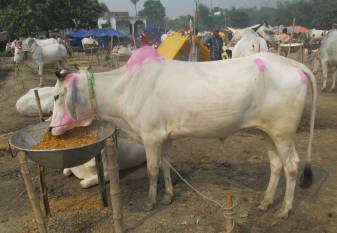MUMBAI, 18 July 2020: The United States has expressed concern over India’s new directive making it mandatory for all commercial feeds, including imports, intended for food producing animals to comply with the relevant Bureau of Indian Standards (BIS) specification and certification norms and pressed for a postponement in its implementation in the light of COVID-19 disruptions.
In a submission to the World Trade Organisation (WTO), US said that the new directive, which is to be implemented from July 27, will have a significant impact on trade in feed ingredients, and potentially on trade in meat and dairy products derived from livestock fed such ingredients in another country, and needed greater discussion.
“The United States has both procedural and substantive concerns. First, it is concerned that India has issued these measures in final, without proper notification or opportunity to comment and have our comments taken into account. Further, the US is concerned that a six-month transition period prior to entry into force is insufficient for exporters to adjust supply chains, particularly in light of the Covid-19 pandemic,” a submission made to the WTO’s Committee on Sanitary and Phytosanitary Measures by US said.
On 27 January 2020, the Food Safety and Standards (Food Products Standards and Food Additives) Amendment Regulation 2020 stated was issued which stated that commercial feeds shall comply with the relevant BIS standards, as may be specified by the Food Authority from time to time, and carry BIS certification mark on the label of the product, it added.
Food Safety and Standards Authority of India (FSSAI) justified the move by observing that that foods of animal origin have been found sometimes to be non-compliant with the relevant food quality and safety standards as has been laid down in the Food Safety and Standards Act, 2006. There were higher quantities of pesticides, heavy metals and Aflatoxin M1 found in several specimen, including milk.
The US, in its submission, asked India to delay implementation of this directive until it is notified for comment and to provide a transition period sufficient to allow operators to adjust supply chains without undue disruption.
It also asked India to take steps to ensure that any changes to its FSSAI Food Additive requirements, that could impact imported products, be notified to the WTO at an early and appropriate stage.




















